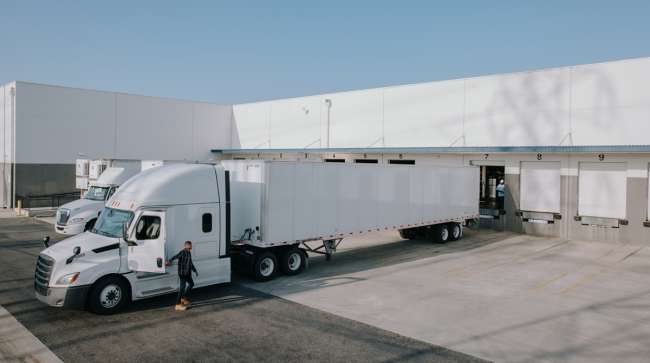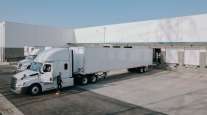Staff Reporter
Uber Freight Ups Cross-Border Business as Nearshoring Booms

[Stay on top of transportation news: Get TTNews in your inbox.]
Uber Freight is expanding its cross-border operations to capitalize on the nearshoring boom, the company announced Oct. 22.
The Chicago-based logistics platform has seen significant growth, reporting a 77% year-over-year increase in cross-border business from shippers and more than 2,000 daily shipments. With its freight under management in Mexico reaching a record $750 million, the company has responded by opening a new office, strengthening its leadership team and expanding its infrastructure.
“As cross-border trade proliferates and nearshoring reshapes supply chains as we know them, we’re proud to be the trusted partner shippers and carriers rely on to navigate complex challenges and capitalize on this burgeoning area of business,” said Uber Freight CEO Lior Ron.
The new office in Nuevo Laredo, Mexico, marks the company’s 10th cross-border location. The company also maintains a strong warehouse presence across the border in Laredo, Texas. As part of the expansion, Jesus Ojeda was appointed executive vice president of Mexico.
McLeod Software CEO Tom McLeod explores the potential for artificial intelligence to boost efficiency and build resilience. Tune in above or by going to RoadSigns.ttnews.com.
According to Ojeda, about 70% of the company’s existing customer base in Mexico is expanding operations. While Uber Freight is working with new customers entering the market, most current investments come from companies with established cross-border operations. These new ventures are expected to become operational within the next two years, further accelerating the nearshoring trend.
“We have heard them announce that new investment that is coming, but it will take one or two years to have them fully installed in Mexico and start producing,” Ojeda told Transport Topics. “It’s a good combination for us, because we already have account management teams trying to secure the business that we currently have helping grow, but also have the business development guys looking for new opportunities.”
Warehouse capacity, rather than driver availability, presents the biggest challenge in border regions, Ojeda said. In Laredo, warehouse occupancy has reached 99.5%, leading companies to secure space years in advance. Similar demand exists in key Mexican cities including Monterrey, Querétaro and Guadalajara.
“If you want to invest, you have to start now to get a new building, near to the city, but have it in two or three years from now,” he said.
Uber Freight offers a suite of cross-border solutions in addition to its warehousing space, including brokerage services, managed transportation, capacity solutions, warehouse and distribution and customs brokerage. The company is working to fully integrate its Mexico network into its transportation management system by 2025.
Want more news? Listen to today's daily briefing below or go here for more info:





